Submitted by Sarbjit Bahga
India’s First Floating School Opens On Manipur’s Loktak Lake
India Architecture News - Feb 19, 2017 - 13:23 30313 views
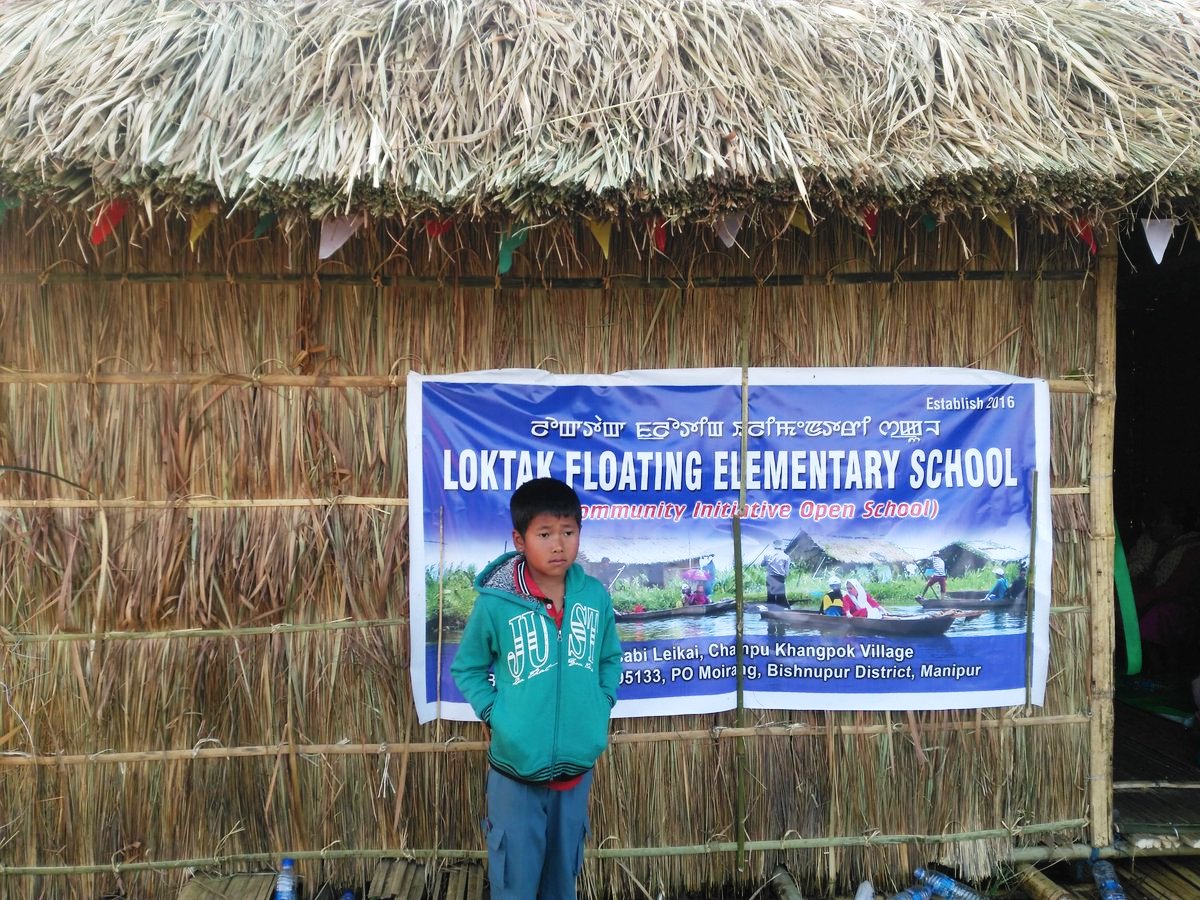
India's first indigenously-built, floating elementary school opens on country's largest freshwater lake, Loktak in Manipur. The school is a stunning example of "sustainable architecture without architects." It is situated about 50 km from Imphal, at Langolsabi Leikai of Champu Khangpok village in the state.
The Loktak Lake is a 'lifeline of Manipur' and plays important role in the economy of Manipur. It serves as a source of water for hydropower generation, irrigation and drinking water supply. The lake is also a source of livelihood for rural fishermen who live in its surrounding areas.
What makes this lake unique are many floating heterogeneous masses of vegetation, soil and organic matter, locally known as 'phumdis'. There are thousands of such 'phumdis' or floating islands of varying sizes in the lake, the largest one covers an area of about 40 square kilometres. One such island is known as Keibul Lamjao which is the only floating national park in the world.
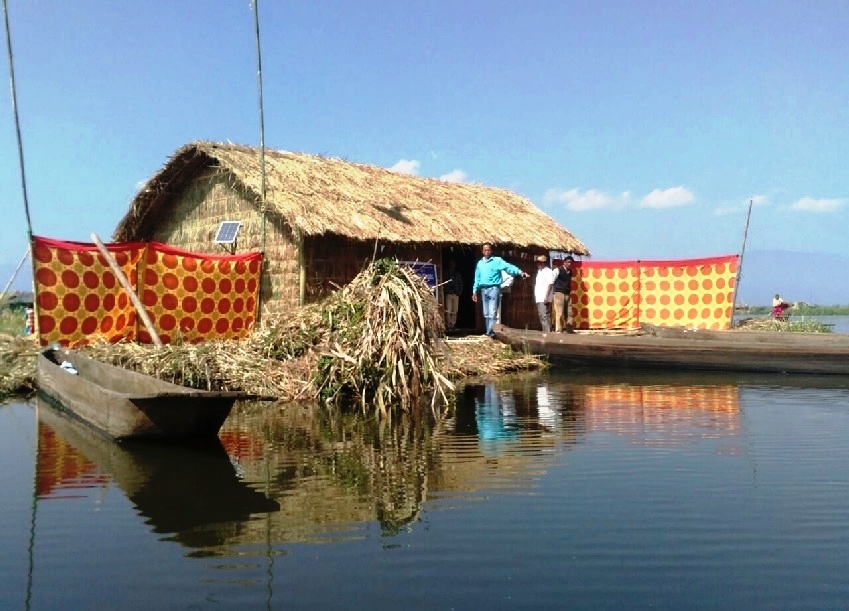
The floating school is located on one such small 'phumdis' or floating island in the lake. A small hut-shaped building of the school has been constructed using local building technologies and materials like thatch and bamboos. It is accessible, obviously through boats which bring children from the nearby settlements established on other floating islands or banks of the lake.
Contrary to its external traditional outlook, the school affords all the modern amenities like solar-generated electricity, computers and internet connectivity. Initially the school is planned to accommodate 25 students and two community teachers. Once the programme is successful, it is envisaged to be expanded.
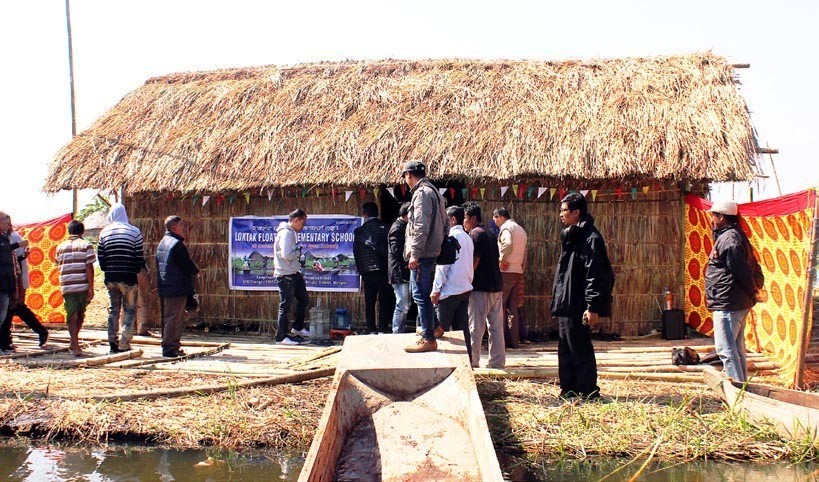
The initiative for the implementation of such a unique idea was taken by the 'All Loktak Lake Fishermen's Union' in collaboration with an NGO called 'People Resources Development Association' (PRDA).
Since the main source of income for locals comes through fishing, which is not much, the families weren't able to send their children to schools elsewhere. With the establishment of this school in the vicinity, families can send their children to attend classes nearby.
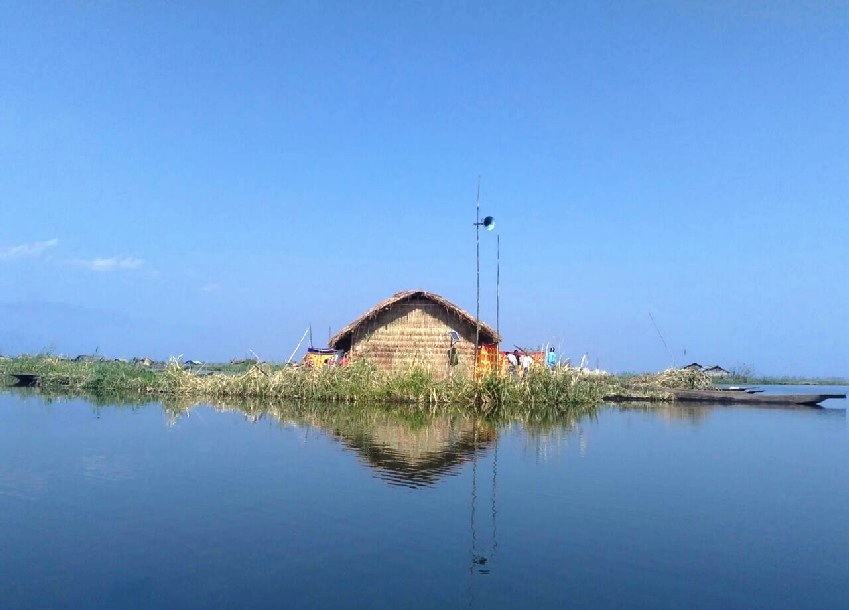
The honorarium of the community volunteers is planned to be given by the PRDA, under the project called 'Empowering vulnerable local communities for sustainable development', which is funded by 'Action Aid India'.
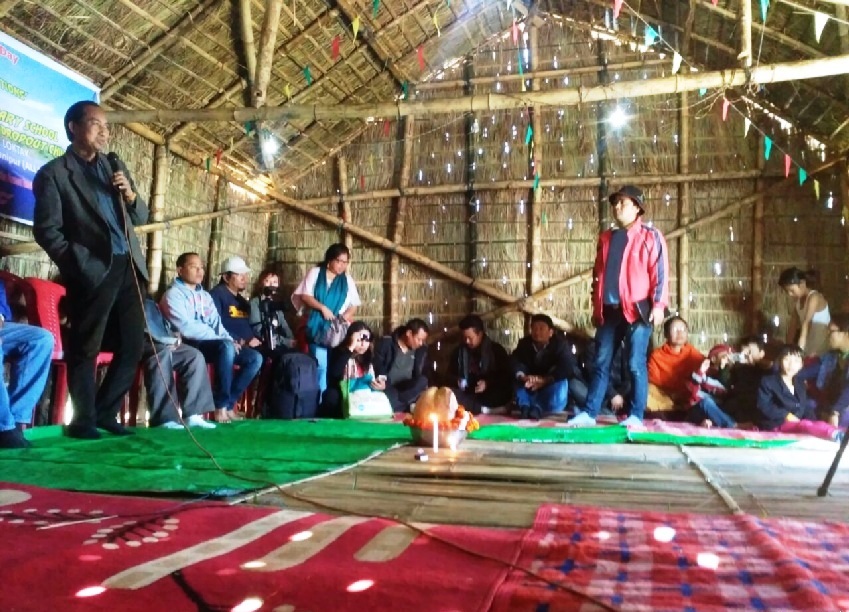
All images courtesy Shankar Khangembam, e-pao
> via e-pao
